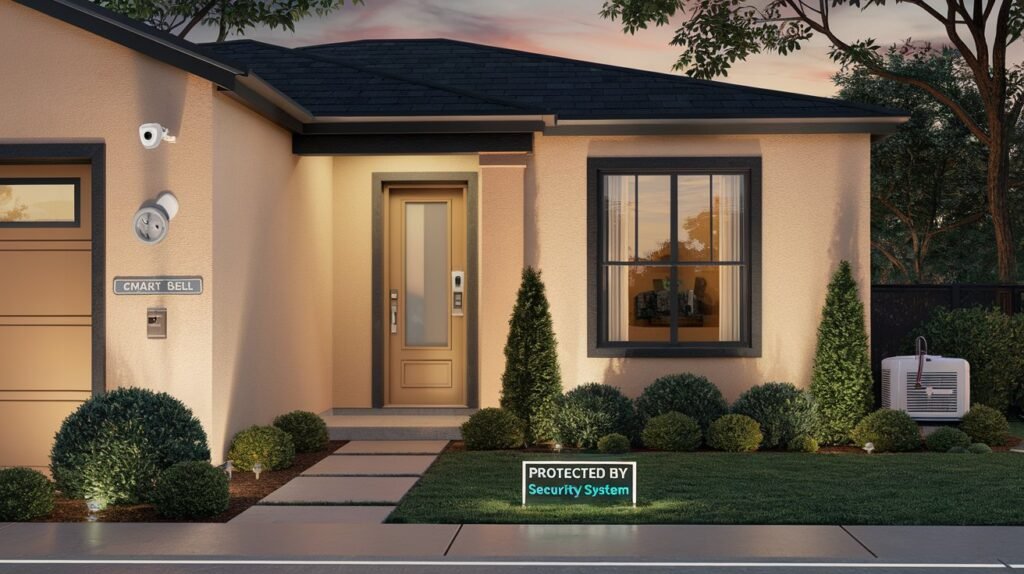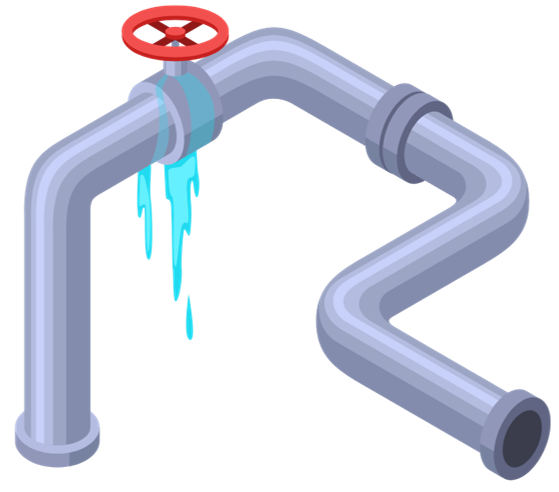“As a homeowner, protecting your property and loved ones is a top priority. But did you know that taking proactive steps to ensure your home’s safety can also have a significant impact on your insurance premiums? By implementing simple yet effective safety measures, you can not only safeguard your home against potential risks and damages, but also enjoy substantial savings on your insurance costs. In this article, we’ll explore 15 comprehensive home insurance safety tips that can help you protect your property, reduce your premiums, and enjoy a more secure and peaceful living environment. From smart home security systems to impact-resistant roofing, we’ll cover the most effective ways to safeguard your home and your wallet.”

Introduction:
In today’s world, homeownership comes with the critical responsibility of ensuring your property is safe, secure, and well-protected. By implementing these comprehensive home insurance safety tips, you can not only secure your property but also potentially reduce your insurance premiums by as much as 25%. Let’s dive deep into fifteen essential strategies that will enhance your home’s safety and improve your insurance standing.
1. Install a State-of-the-Art Security System
Investing in a cutting-edge security system is one of the most impactful home insurance safety measures. Look for systems that include:
- Motion sensors with pet-friendly settings
- Door and window alarms with glass break detection
- 24/7 professional monitoring services
- Smart home integration for remote access and control
- Cellular backup to ensure protection during power outages
- Video doorbells and outdoor cameras
Many insurance providers offer discounts of up to 20% for homes with advanced security systems. When choosing a system, opt for those certified by Underwriters Laboratories (UL) for the highest quality and reliability.
2. Upgrade to Smart Smoke and Carbon Monoxide Detectors

While traditional alarms are good, smart detectors offer superior protection:
- Send real-time alerts to your smartphone
- Detect both fast-burning and smoldering fires
- Monitor carbon monoxide levels continuously
- Integrate with your home automation system for synchronized alerts
- Self-test to ensure they’re always functioning properly
- Provide voice alerts specifying the type and location of danger
Look for detectors with a sealed 10-year battery for long-term reliability. Installing these devices can lead to insurance discounts of up to 5%. ( read : Fire and Gas detection system and types of Fire and Gas Detectors )
3. Implement Comprehensive Water Leak Detection Systems

Water damage is one of the most common and costly issues for homeowners. A sophisticated water leak detection system can:
- Monitor water flow throughout your home
- Detect leaks as small as a drip per second
- Automatically shut off the main water supply if a leak is detected
- Provide smartphone alerts for any unusual water activity
- Track your water usage and help conserve water
Some advanced systems can even detect frozen pipes before they burst. Insurance companies often offer discounts of 3-5% for homes with these systems installed.
4. Reinforce Doors and Windows with High-Security Features
Strengthening your home’s entry points is crucial. Consider these advanced measures:
- Install Grade 1 ANSI/BHMA certified deadbolts on all exterior doors
- Use laminated or tempered glass for windows, especially on the ground floor
- Add security film to existing windows (minimum 12 mil thickness)
- Install door jammers or security bars for additional protection
- Use smart locks with biometric or code access for enhanced security
- Consider installing security storm doors for an extra layer of protection
These improvements can deter burglars and may lead to insurance discounts of up to 5%.
Securing Integrations Best Practices for Salesforce API Security
5. Develop a Comprehensive Property Maintenance Schedule
Regular maintenance is key to preventing accidents and damage. Create a detailed schedule for:
- Quarterly gutter and downspout cleaning
- Bi-annual tree trimming, focusing on branches near the house
- Annual professional roof inspections
- Monthly checks for signs of pest infestation
- Seasonal HVAC system maintenance
- Annual chimney sweeping and inspection
- Regular checks of foundation for cracks or water damage
Well-maintained homes are less likely to face sudden, costly repairs. Some insurers offer “claims-free” discounts of up to 10% for homeowners who don’t file claims for an extended period.
6. Create a Detailed Digital Home Inventory
While not a physical safety measure, maintaining a comprehensive home inventory is crucial for insurance purposes. Use a dedicated app or cloud-based service to:
- Document your belongings with high-resolution photos and detailed descriptions
- Record serial numbers for electronics and appliances
- Keep digital copies of receipts for valuable items
- Update the inventory quarterly or after major purchases
- Store the inventory in a secure, cloud-based location for easy access
This practice ensures you’re adequately covered and can streamline the claims process. Some insurers offer small discounts (1-2%) for maintaining a detailed inventory.
7. Install Strategic Outdoor Lighting
Enhance your home’s safety profile with a well-planned lighting system:
- Install motion-activated LED floodlights covering all entry points
- Use solar-powered pathway lights to illuminate walkways and garden areas
- Set up timer-controlled or light-sensitive front porch and garage lights
- Consider smart outdoor lighting that can be controlled via smartphone
- Use landscape lighting to eliminate dark areas around your property
Well-lit properties are less attractive to potential intruders and can reduce the risk of accidents. This can contribute to overall safety discounts.
8. Secure Your Wi-Fi Network and Smart Home Devices
In the digital age, cybersecurity is a crucial aspect of home safety:
- Use a strong, unique password for your Wi-Fi (minimum 12 characters, mix of upper/lowercase, numbers, and symbols)
- Enable WPA3 encryption on your router
- Regularly update your router’s firmware and all connected devices
- Set up a guest network for visitors to keep your main network secure
- Use a VPN for added security when accessing sensitive information
- Secure all smart home devices with two-factor authentication where possible
A secure network protects your personal information and smart home devices from cyber threats. While not typically tied to specific discounts, it can prevent costly data breaches.
9. Invest in a Whole-House Backup Generator
Power outages can lead to various safety issues. A whole-house generator can:
- Keep essential systems running during extended outages
- Prevent food spoilage in refrigerators and freezers
- Maintain security systems, lighting, and HVAC functionality
- Power medical equipment for those with health needs
- Prevent pipes from freezing in winter power outages
Look for generators with automatic transfer switches for seamless power transition. Some insurers offer discounts of 2-5% for homes with backup power solutions.
10. Actively Participate in a Neighborhood Watch Program
Community involvement can significantly enhance home safety:
- Attend regular neighborhood watch meetings
- Learn to identify and report suspicious activities
- Participate in community safety initiatives
- Use neighborhood communication apps for real-time alerts
- Organize community events to strengthen neighborhood bonds
Some insurance companies view active participation in such programs favorably, potentially leading to community safety discounts.
11. Install Impact-Resistant Roofing
Upgrade your roof to withstand severe weather:
- Choose materials rated for high wind resistance (Class H or higher)
- opt for impact-resistant shingles (Class 4 rating)
- Consider cool roof technology to improve energy efficiency
- Ensure proper installation with enhanced nailing patterns
- Add a secondary water barrier under the roofing material
Many insurers offer substantial discounts (up to 10-20% in some areas) for impact-resistant roofing, especially in regions prone to severe weather.
12. Implement Smart Water Shut-Off Valves
In addition to leak detection systems, smart water shut-off valves offer extra protection:
- Automatically shut off water supply when leaks are detected
- Allow manual shut-off via smartphone app
- Monitor water pressure and temperature
- Integrate with home automation systems
- Provide detailed water usage analytics
These devices can prevent catastrophic water damage and may lead to additional insurance discounts beyond basic leak detection systems.
13. Upgrade to Fire-Resistant Landscaping
Create a defensible space around your home, especially in wildfire-prone areas:
- Use fire-resistant plants in your landscaping
- Maintain a 30-foot buffer zone around the house clear of flammable vegetation
- Use gravel or stone mulch instead of wood chips near the house
- Keep gutters and roof clear of leaves and debris
- Prune trees to keep branches away from the roof and chimney
In wildfire-prone regions, this can lead to significant insurance discounts and improved coverage options.
14. Install Anti-Theft Devices on Valuables
Protect high-value items with dedicated anti-theft measures:
- Use bolted-down safes for jewelry and important documents
- Install GPS trackers on expensive electronics or artwork
- Use smart tags on commonly stolen items like bicycles
- Consider a home safe room for extreme protection
While not always tied to specific discounts, these measures can help in the claims process and demonstrate responsible ownership to insurers.
15. Conduct Annual Home Safety Audits
Regularly assess your home’s safety measures:
- Check all safety devices (alarms, extinguishers, etc.) for functionality
- Review and update your emergency evacuation plan
- Inspect structural elements for signs of wear or damage
- Update your home inventory and insurance coverage as needed
- Reassess your insurance policy to ensure it matches your current needs
Annual audits help maintain a high level of safety and can identify areas for improvement, potentially leading to better insurance terms.
learn how to Conduct a Proper Safety Audit
Conclusion:
Implementing these comprehensive home insurance safety tips not only protects your property and loved ones but can also lead to significant savings on your insurance premiums – potentially up to 25% or more when multiple measures are combined. Remember, a safer home is a more insurable home. By taking these proactive steps to reduce risks, you’re demonstrating responsibility to your insurance provider and creating a more secure living environment for yourself and your family.
Call to Action:
Review your current home safety measures against this comprehensive list. Prioritize implementations based on your home’s specific needs and your budget. Contact your insurance provider to discuss how these improvements might affect your premiums and coverage options. Remember, when it comes to home safety, every improvement counts towards creating a safer, more secure home and potentially reducing your insurance costs.
Photo of the day: Tips to reduce Heat stress in the workplace
Read more safety topics and resources at Safety Bagresources




